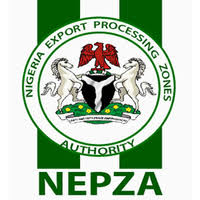NEPZA Says Irregular Shipping Services, Others Threaten Manufactured Products

The Nigeria Export Processing Zones Authority (NEPZA), the agency in charge of licensing of these zones has said infrastructure deficit, legal disputes, failure to raise capital, insecurity and the general harsh economic environment are leading reasons why a significant number of Free Trade Zones (FTZs) in Nigeria have remained moribund.
According to report, there are over 42 licensed free trade zones in Nigeria with over 500 businesses (companies) doing business with them.
Some of these functional zones face huge challenges that are hampering their operations.
In a report, Martins Odeh, head, corporate communications, NEPZA, noted that the failure of government to provide infrastructure around the active zones is crippling the potential of the zone. For instance, a bad road network has posed a big challenge to investors in the Guangdong Free Trade Zone, Ogun State while insecurity has driven investors away in the northern zone such as the Banki Border Free Zone.
Experts have stressed that that the lack of reliable data on the performance of the economic zones has also been a lingering hurdle, which has caused governance operators to work in the dark.
President of the Calabar Chamber of Commerce, Industry, Mines and Agriculture, David Etim said the biggest challenge affecting the Calabar Free Trade Zone, is irregular shipping service.
Etim, who spoke to Daily Sun on some of the challenges facing the zone noted that shipping lines don’t come to Calabar regularly, adding that this has slowed down the export of manufactured products.
Reeling out some challenges bedevilling the zone, which he said included multiple tax, power, poor utilities, among others, he noted that there was need for structural measures to put things right.
He said for a FTZ to function well, there must be a port attached to it for a regular shipping because manufacturing in the FTZs are principally for exports.
“For a FTZ to function well, there must be a port attached to it for a regular shipping because Manufacturing in the FTZs are principally for exports. So, if the means of moving the goods for export is hampered, the purpose is not achieved.”
He also decried the issue of multiple taxes in the zone, which he said was ridiculous in a free zone.
On incentives to the zones, he said they were coming but cannot be effective if manufacturers cannot export the goods they produce.
“Incentives are coming but cannot be effective if manufacturers cannot export the goods they produce; the more you export, the more incentive you access.
He disclosed that the chamber was already engaging government on the challenges and expecting improvement in the business environment.
For Mrs Bosun Solarin, founder, Dosun Integrated Farms and Chairperson, Export Group of the Lagos Chamber of Commerce and Industry (LCCI), she lamented that the facilities at the zones were given to foreign companies who at the end of the day repatriate the proceeds to other countries.
She said the Nigerian Investment Promotion Commission (NIPC) believes these investors already have the capital and machines, especially the big companies, who will generate employment.
Solarin noted that local investors were neglected due to lack of capital to do such big projects, adding that if enabled financially, they could also generate employment and foreign exchange.
She called for hubs for SMEs and local producers in FTZs and called for funding by public private partnership to encourage local producers to partake in the FTZs.
The World Bank defines free trade zones as “in, duty-free areas, offering warehousing, storage, and distribution facilities for trade, transshipment, and re-export operations.”
Free-trade zones are also seen as labour-intensive manufacturing centers that involve the import of raw materials or components and the export of factory products, as well as service industries such as software, back-office operations, research, and financial services. Such zones usually enjoy some customs-related advantages as well as exemptions from state and local inventory taxes.



